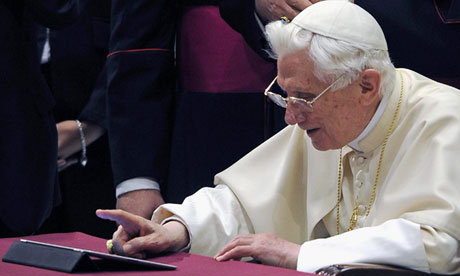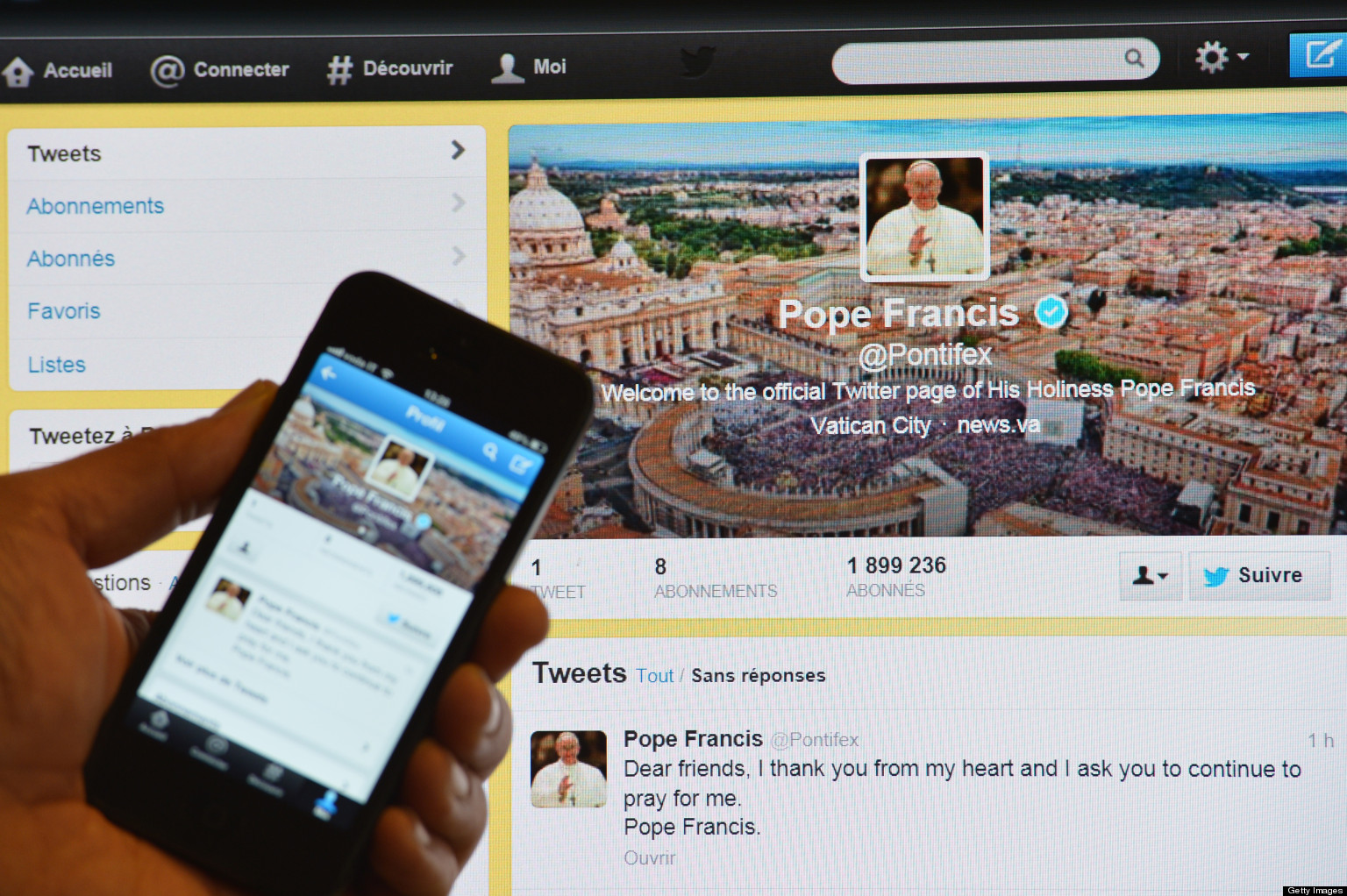"Hindi ko na siguro kailangang sabihin kung gaano kayo kapalad na mapabilang sa henerasyon. Nabubuhay kayo sa mundo na wala ka nang karapatang maging tanga, maging mangmang. Dapat may maglabas ng ganyang slogan sa advertising, “BAWAL MAGING TANGA.” Nagtatampisaw tayo sa baha ng impormasyon."
We are now a generation of copy-pasting. Thanks to the Internet that we were able to research on various topics in a few seconds, unlike in the past that we need to go to the library to search on one specific topic. And in the Internet we Catholics are very blessed that we can gain access to Catholic websites and online materials regarding faith and the Church itself. I remember it was the time of Benedict XVI that Catholics have started to make and manage their own blogs in sharing ones' faith to others. I thanked Catholic Answers for helping me understand the Faith with their simple but sensible and enlightening Biblical explanation of Church doctrines. To be honest, I am an avid reader of the blog Rorate Caeli, although some of you may react negatively but I don't give a damn about it.
I love to read. I love to read especially when it comes to books about History, especially Philippine History. In our have a complete set of Grolier Encyclopedia. When I am bored, I try to find books and some reading materials just to read to kill time. I also love to read comics. I am also collecting Kiko Machine comics. That is why people used to call me a "historian." When I open the Internet, I usually read news articles on today's world affairs and kill time by searching numerous topics on Wikipedia. I do not want to boast, but this gave me a sufficient amount of knowledge.
Stand-out. It is very necessary in class to recite and to show your talents and skills to get good grades and to hone more your skills so as to be used in the future. That is why being different gives you the opportunity to contribute something good by being unique in our styles and to boost your confidence and self-esteem as a person.
But I have realized that standing-out too much is unhealthy in the eyes of my friends and of my colleagues especially as a seminarian. I experienced the feeling of being teased, fooled and rejected for I was very vain when I share some of my knowledge in front of the class. I realized that I would receive nothing in return. To be honest, I am sometimes ashamed in front of my high school batch mates and even my brother-seminarians because I am very conscious to their impressions on me, mostly negative. I cannot blame or denounce them because I am the one who is in control of myself, so I am responsible of my actions done which gave people a very negative impression on me. It really hurts, but I need to get real.
I sometimes really regretted to have this knowledge when I didn't really enjoy my high school life. The experience of having friends(although I have few friends, but not enough). I have realized it when I became a seminarian. Priesthood is a life for extroverts. You need to have many connections, friends especially it is a need for your pastoral ministry. The parish priest reflects the image of the parish itself. The experience of doing things teenagers in high school love to do. Doing silly things. The experience of being in love. Sabi nga ni Sharon sa kanyang kanta na:
"High school life, ba't ang high school life
Ay walang kasing saya?"
I spent all the time being in my comfort-zone and studying things that are reserved and discussed ONLY for priests, theologians, professionals and those who are fit to be in this field.
I sometimes regretted the time I spent most on uselessly debating other people in the name of "Church" when in fact it is your ego that you are really defending. It is like Don Quixote fighting the "giants" when in fact he is destroying windmills. I sometimes regretted discussing with them on the Church especially on doctrine when in fact you are not in a position to do it. I don't have a doctorate on the liturgy or a licentiate in Canon Law yet I am correcting a priest(especially with a degree) or a layman with an ecclesiastical degree that their position and example was wrong. They need to do this, they need to that.
Friends are there if you are having a problem and they give advice to give a clear look at your problem and solve it. Especially when it comes to love life. The thing is, you haven't engaged in any type of relationship. How awkward.
Well it is very easy to give advice on numerous situations, just because you've learned it by what the books say. We think ourselves as "very very wise" and we always have a good feeling when someone approaches and asks us for a good advice. But the reality is we clearly don't have any experience on the situations they've experienced today. When it is our turn to experience what they've experienced, we go berserk. We share our thoughts very simply, but we say it too naively.
Although I really regretted the past I have done and the reason why I sometimes withdraw from the crowd, I never blamed God nor anyone it is because I am in control of myself, therefore I am responsible of the actions I have done. I am proud to have this gift because in small ways, I have a broad view of the reality and able to deal with the positive and negative things coming to my life. I would like to share a thought coming from the book by Msgr. Georg Ratzinger, the brother of Benedict XVI, in his book My Brother, the Pope that struck me most.
"Pope Pius XI, who beatified Brother Konrad in 1930 and canonized him in 1934, explained: "In him shine forth purity and humility, love for God and neighbor, fidelity to duty"--- duties that impressed young Joseph Ratzinger, also. So even later he often asked himself how it was that God shows himself mostly clearly in simple people. That also became for him an incentive never to forget his own roots and never to "stand out" intellectually."
As a seminarian, I must undergo a life of change. To be honest, I am still stuck in my own pedestal - a pedestal of my self-comfort but I am trying with my own strength and faith to God to open myself to Christ who is present to everyone and not to my own preference. It is very hard, but with faith in Him I can do everything in Christ Jesus. I must enjoy life according to my age, I must be myself always. I must share this gift to win friends and gain their trust and respect, and to be humble always even when I face numerous rebukes and difficulties in my life.




















